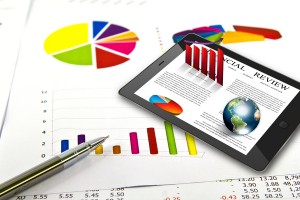The United States economy is in a quandary right now: companies are hiring but they are part-time, service sector jobs; the stock market is roaring but possibly due to the Federal Reserve inducing bubbles; consumers are borrowing again but debt levels are at or near all-time highs. For millions of Americans, the country is still in a recession.
On Friday, the National Association of Business Economics (NABE) July Outlook Supplement discovered that economists believe the economy will slow down to a projected 1.6 percent, a decline from 2.5 percent in the previous month. Despite the cut in growth rates, none of the 50 panel economists surveyed think the country is headed into a recession anytime soon.
 Although the U.S. started off the year on the wrong track, economists averred in a statement that the economy is on a stable footing and a substantial majority (90 percent) of economists believe the odds of the U.S. falling back into a recession sometime in the remainder of the year or in 2015 is less than 25 percent.
Although the U.S. started off the year on the wrong track, economists averred in a statement that the economy is on a stable footing and a substantial majority (90 percent) of economists believe the odds of the U.S. falling back into a recession sometime in the remainder of the year or in 2015 is less than 25 percent.
The NABE further continued in a statement:
“Despite lowering their forecasts for 2014, panel see a low probability of a U.S. recession in 2014 or 2015. Almost 60% of the panelists put the odds at less than 10%, while nearly another third (32.7%) estimate the recession probability at between 10% and 25%. Only about 8% believe the probability is higher than 25%, with just 2% putting the odds at greater than fifty-fifty.”
When analyzing the data, consumer spending is expected to be slower than initially projected. Spending is anticipated to inch higher at a 2.3 percent annual rate, compared to June’s estimate of 2.9 percent.
Exports, meanwhile, have been rebounding from the first quarter’s losses as they are forecast to grow at a 2.5 percent annual rate, compared to the three percent projected in last month’s NABE survey.
Minutes from the Federal Reserve’s last meeting did not indicate that the central bank would be raising interest rates, though inflation and unemployment levels are reaching its target levels. However, economists expect the rates will hike in the near future.
More than half of economists forecast the Fed will increase its federal funds rate target during the first half of next year, while more than one-third (37 percent) project rates to be raised in the second quarter of 2015. Another roughly one-third (36 percent) think rates will be hiked in the second half of next year.
Jack Kleinhenz, president of the NABE and chief economist at the National Retail Federation (NRF), told The Hill that expectations are down for growth, exports and spending, but there are various other signs that the U.S. economy is improving.
“Many of the fundamentals are there for growth,” said Kleinhenz.
Many investors are wary over these kinds of reports because these same economists didn’t expect the Great Recession a year or two prior. For instance, a Mar. 2007 NABE Economic Policy Survey found that 35 percent of economists thought the greatest short-term threat to the economy was defense and terrorism and one-quarter cited healthcare as the biggest long-term challenge. Economists stated at the time that the biggest strength in the country was its economy.
Here is what former Fed Chair Ben Bernanke said in 2007 :
“At this juncture, however, the impact on the broader economy and financial markets of the problems in the subprime market seems likely to be contained. In particular, mortgages to prime borrowers and fixed-rate mortgages to all classes of borrowers continue to perform well, with low rates of delinquency.”



